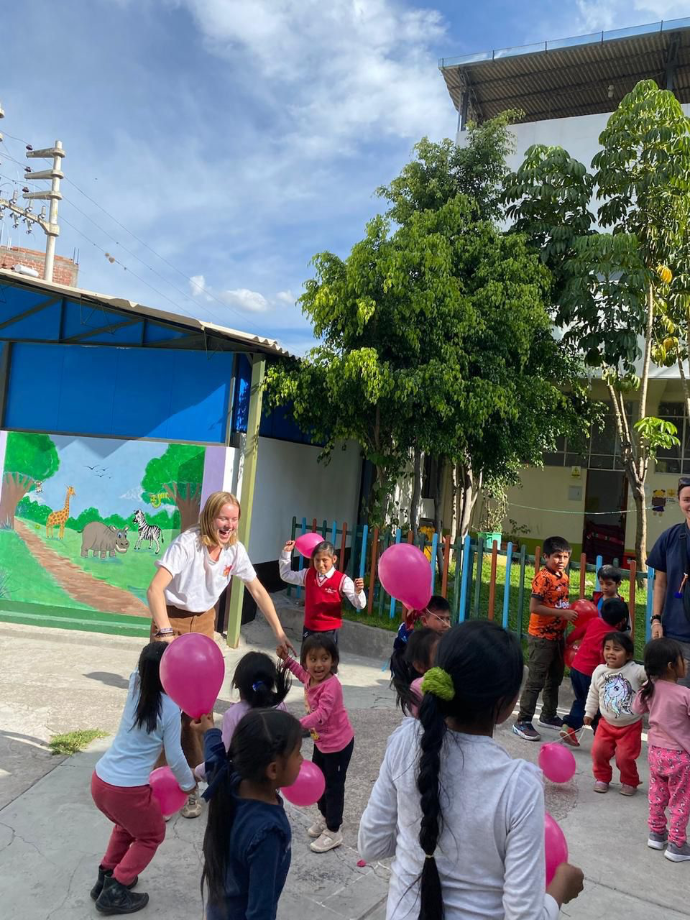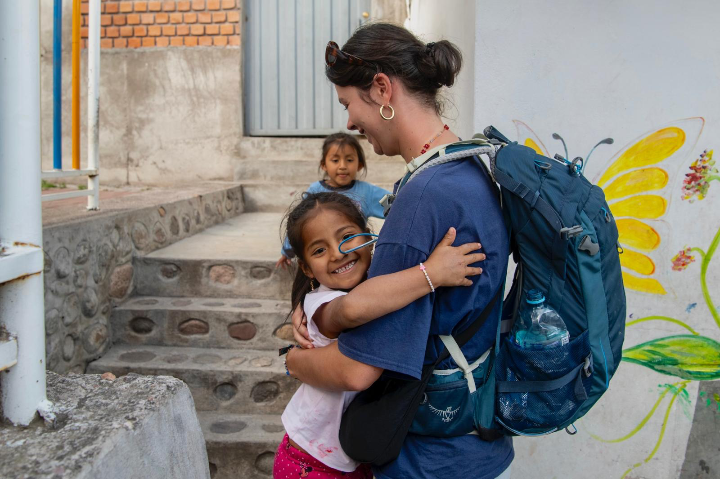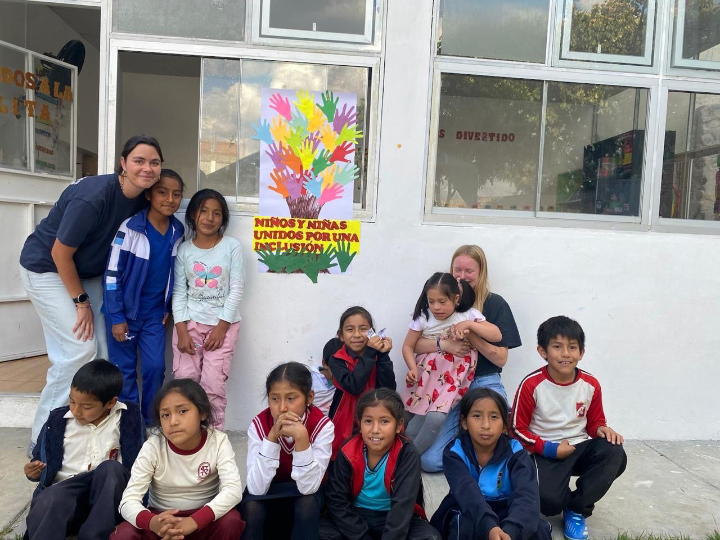After completing their studies, Roos and Elise were ready for something new. Roos, who graduated in Educational Sciences, was looking to get involved in a meaningful social project. Elise, with a background in Multilingual Professional Communication, hoped to improve her Spanish and immerse herself in South American culture. Their shared sense of adventure led them to our volunteer project in Peru.
For seven months, they became a valuable part of our local team, who welcomed them with open arms. Reflecting on the beginning of their journey, Elise recalls, “We didn’t really have many expectations, we were open to anything.”
Now, as their time with us came to an end, we took the opportunity to look back on their experience in our projects!
Tasks and Daily Routine
Roos and Elise worked closely with teenage mothers and their children. They joined home visits, outreach activities to and supported art therapy sessions by helping with materials and offering a calm, supportive presence. In the afternoons, they lent a hand at Diamanta, assisting with our after-school care, homework class, for the children of the knitters.
At first, they doubted whether they could truly make a difference. But soon, they saw how valuable their presence was. Sometimes, just listening and being there is enough—and their contribution offered not only practical support but also meaningful intercultural connection.
Working with teenage mothers was challenging at first, especially because there were few common experiences to connect on. “The staff provide not only psychological help, but also make sure the mothers finish their schooling,” Elise says. But the children at Diamanta leave the biggest impression: "They are so grateful,” Roos shares. “Every day we get hugs, without having to do anything special.”
Unforgettable moments
When Roos and Elise talk about their time in Peru, certain memories immediately come to mind. For example, the day a speaker was brought to school. Within seconds, everyone was dancing to a cheerful Christmas song about a donkey. A simple moment, yet so special. Or the time they organized a big soccer match, boys against girls. Everyone played with enthusiasm, and the atmosphere was incredible. For a while, the children forgot everything around them and were simply having fun.
Roos and Elise emphasize that they were only a small part of the project. “The real impact comes from the permanent staff,” Roos says. “We support, help with homework, and give the kids confidence, but the most important work is done by the local team.”
For themselves, the impact was huge. “I learned to put things in perspective,” Roos says. “People here have little, but live happily. Our problems in Belgium seem smaller because of that.” Elise adds: “The kids here are always happy, despite difficult home situations. That realization makes you see how spoiled we are in Belgium.”
Cultural differences
Working in a Peruvian team brought some interesting cultural differences. “The people here are incredibly kind and warm,” Roos says. “But there were also habits that were difficult to understand, like filming aid activities and posting them on social media. That would be unacceptable in Belgium, but here it’s the norm.”
Lessons for the future
What they’ll especially take with them for the future is the relaxed way of life. “In Belgium, there’s a lot of stress, but here not so much,” Elise explains. “Everything eventually works out, and people really take time for each other. That’s a valuable lesson.”
A heartfelt thank you to Roos and Elise for their helping hands, warm hearts, and ever-smiling attitude. You will always be part of our story — and our Peruvian family.


